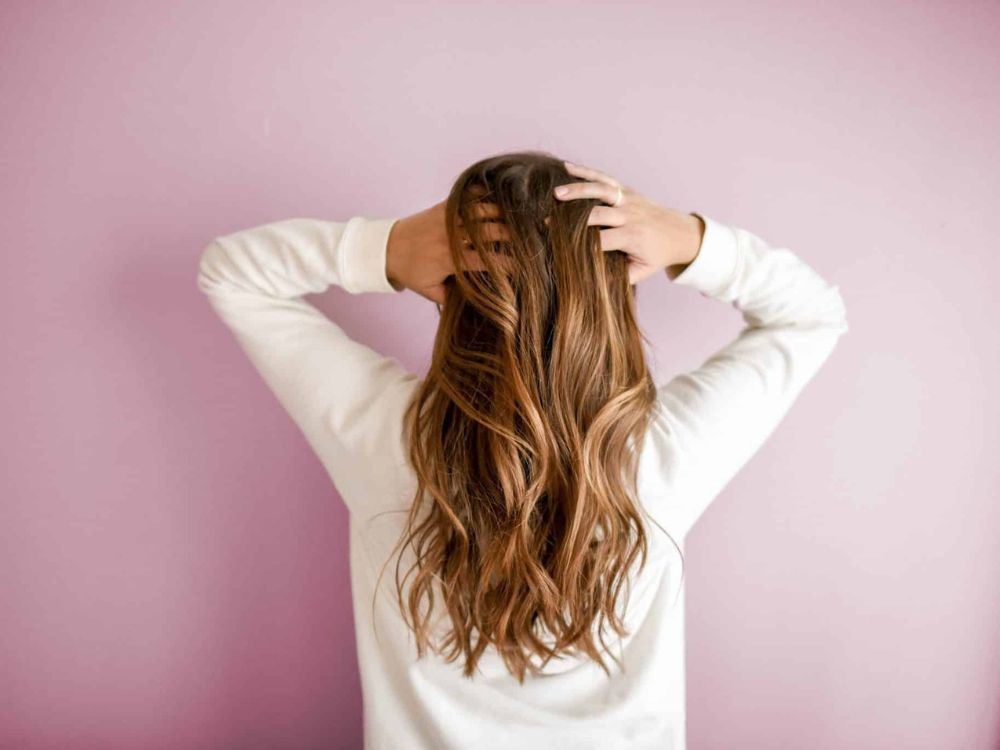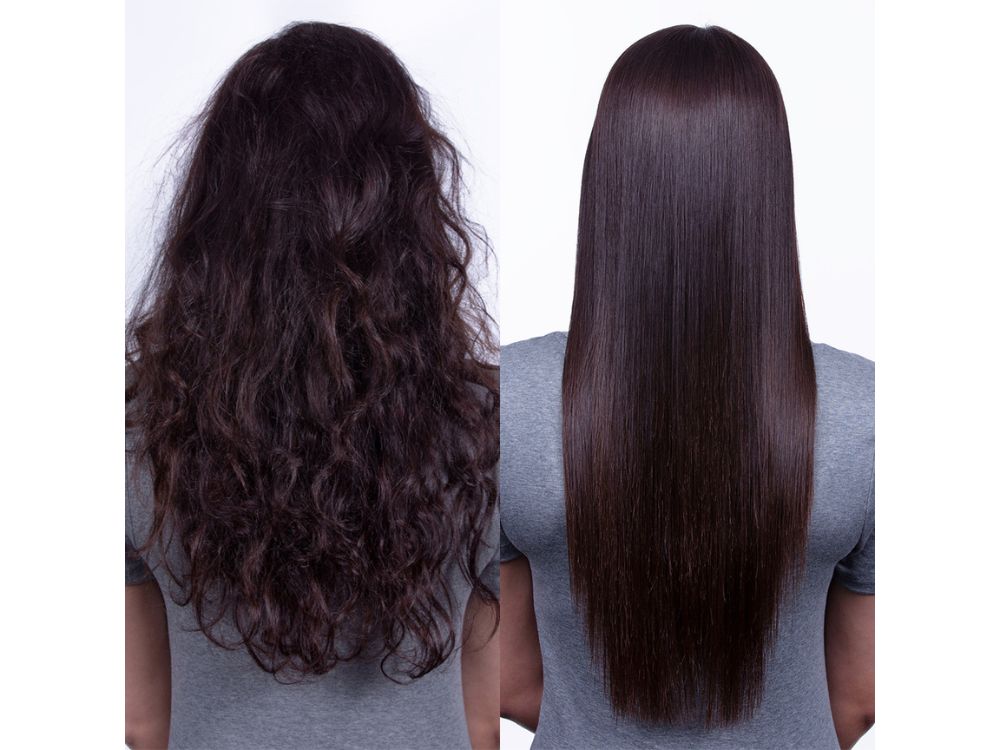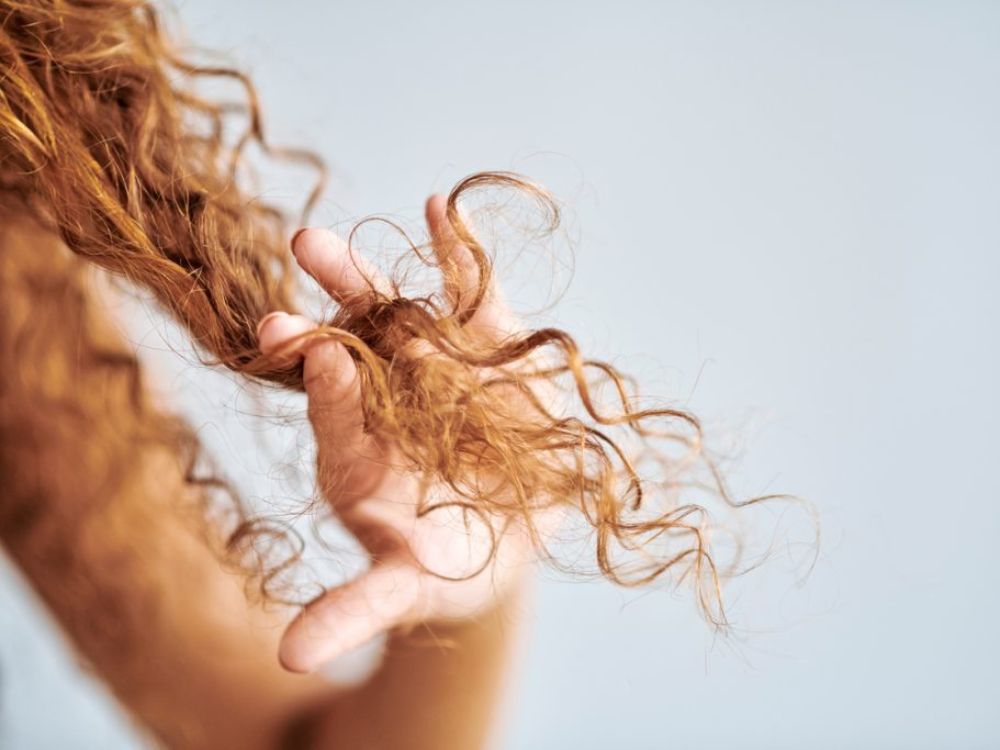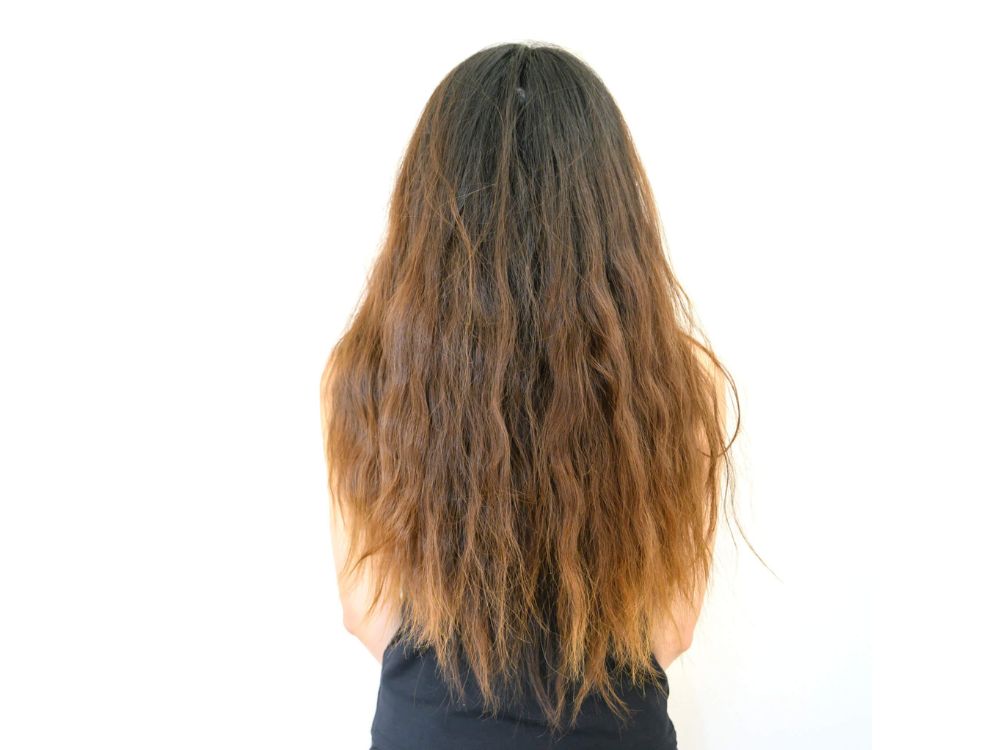What is protein hair treatment? Its most important benefits and harms

Protein is considered an essential element for the health of your hair as it provides the strength and flexibility that promotes healthy hair strands. That's why there has been a recent surge in what's known as protein treatments. These treatments have gained significant popularity among women due to their reasonable cost and satisfying results. With the proliferation of hair care products in the market containing or promoting protein as an effective solution for various hair issues, it's important to understand protein hair treatments more thoroughly from reliable sources, recognizing both their benefits and drawbacks to ensure you get the full and correct benefits for your hair, and that's exactly what we'll discuss in this article.
If you're not ready to undergo protein hair treatments, that's perfectly fine. You can still achieve the healthy and attractive hair look that these treatments offer, and even more, in just a few minutes by relying on high-quality, natural-looking hair extensions. These extensions are luxurious in appearance and soft in texture, allowing you to shine with them, whether permanently or temporarily, using natural hair weaves, clips, or even natural hair wigs that instantly give you a natural hair look enhanced with a fantastic range of colors and styles that will captivate you.
What is Hair Protein Treatment?
Let's begin by understanding the concept of hair protein, which simply refers to treatments applied to address hair issues and enhance its health. In most cases, protein hair treatments are administered without a prescription, but they are professionally applied by hair salon experts or specialists in hair care. During the treatment process, protein is added to the hair shaft, filling in gaps, improving overall hair health and elasticity. Protein also enhances hair texture and strength.
Furthermore, protein treatments provide nourishment to the hair, aiding in the repair of damage and preventing split ends. They form a protective layer that helps prevent hair damage and loss of natural protein essential for maintaining hair health. There are two common types of protein treatments widely sought after by many women today: keratin treatment and cysteine treatment.
Benefits and Drawbacks of Hair Protein
As mentioned earlier, protein is a fundamental component for healthy hair, and a deficiency in protein can lead to dry, dull, damaged hair that is prone to breakage, split ends, and even hair loss. Therefore, it's crucial to maintain a balanced diet that includes an adequate protein intake to ensure your hair receives its necessary share of protein.
You might be wondering about the use of external protein treatments and whether they offer the same benefits as dietary protein. We will delve deeper into this by exploring the benefits and potential drawbacks of protein hair treatments, including possible side effects and undesirable consequences for your hair.
Benefits of Hair Protein Treatment

Let's start by discussing the benefits of protein treatments for your hair and what they can offer you in terms of achieving healthy, flawless hair, free from common hair problems like split ends, hair loss, dryness, and breakage. Among the most significant benefits of protein for hair, we've compiled the following:
-
Preventing Hair Damage:
Protein treatments create a protective barrier that shields your hair shaft from root to tip. This protection helps safeguard your hair from the high heat generated by styling tools and harmful UV rays. Consequently, the protective layer provided by protein treatments minimizes the risk of hair damage and ensures your hair maintains a healthy, vibrant appearance.
-
Repairing Split Ends:
The issue of split ends is one of the most common hair problems, affecting many individuals, particularly women. It is also one of the most challenging problems to address. However, by using protein treatments that strengthen the hair shaft, you can effectively prevent split ends and the appearance of damaged tips on a more permanent basis.
-
Strengthening Hair:
Protein treatments work to strengthen hair follicles and promote healthy hair growth. This makes your hair less prone to breakage by filling in gaps in the hair's structural layer. Protein treatments have the capability to restore hair strength and resilience.
-
Protein treatments increase the elasticity of your hair.
Here, elasticity refers to your hair's ability to stretch and return to its original shape and texture without breaking. Many people struggle with hair breakage when straightening or styling, and this is where protein treatments come into play. They enhance the hair's elasticity by reinforcing its protein structure, making it more resistant to breakage and more flexible.
-
Protein treatments improve overall hair health
In simple terms, incorporating regular protein treatments into your hair care routine will result in hair that is healthier, smoother, and stronger. You'll notice a significant difference in the softness and shine of your hair, with less frizz and an overall improvement in the health of your hair.
The Potential Drawbacks of Hair Protein

After understanding the significant benefits of protein for hair, let's now explore the potential drawbacks that can occur due to mishandling protein treatments. Here are the most important concerns regarding the possible adverse effects of protein treatments on hair:
-
Excessive Dryness and Fragility:
Overuse of protein treatments can lead to dry, brittle hair. Excessive protein doses can make your hair feel harsh and more prone to split ends and breakage. It is crucial to maintain a balance between protein and moisture in your hair care routine and avoid overusing protein treatments.
-
Hair Loss Due to Frequent Use:
Frequent and imbalanced use of high-concentration protein treatments can lead to hair loss. Therefore, it's essential never to overdo it with protein, as excessive amounts of it in your hair can result in thinning hair and eventual hair loss.
How to Identify Protein Deficiency in Hair?
One of the most common questions is how to determine whether your hair needs protein or not. To help you understand your hair's protein needs, we've compiled a list of the most significant signs that indicate your hair might require protein:
- Excessive Hair Loss: One of the most common signs that your hair needs protein is significant hair loss. Protein deficiency in hair can lead to an excessive shedding of hair strands.
- Tangling and Knots: Another sign of protein deficiency in hair is frequent tangling and knots. Protein helps make your hair more elastic and smoother, reducing the likelihood of tangles and knots.
- Reduced Hair Thickness: A decrease in hair volume and thinning hair is an indicator of protein deficiency. Balanced hair volume is a sign of healthy hair, and a reduction suggests a lack of protein.
- Appearance of Split Ends: Split ends are often associated with protein deficiency in hair. They occur due to hair breakage and reduced elasticity, indicating a need for protein to address these issues.
What Are the Signs of High Protein Levels in Hair?

While it's true that protein deficiency can lead to certain hair problems, having an excess of protein in your hair can also result in unwanted symptoms. Here are some common signs that indicate your hair may have an excessive amount of protein:
- Harsh, Straw-Like Texture: One of the most common signs that your hair has an excess of protein is a rough, straw-like texture that feels similar to straw.
- Coated and Heavy Hair: Another common indicator that your hair has an excessive amount of protein is the feeling of your hair being coated and heavy.
- Difficulty Maintaining Curls and Hairstyles: If you notice that your hair struggles to hold curls or different hairstyles, it may suggest an excess of protein in your hair.
In summary, protein treatments offer various benefits for your hair, including increased strength, reduced breakage, and improved overall hair health. However, it's crucial to strike the right balance in the application of protein treatments and avoid excessive usage that could potentially harm your hair.






